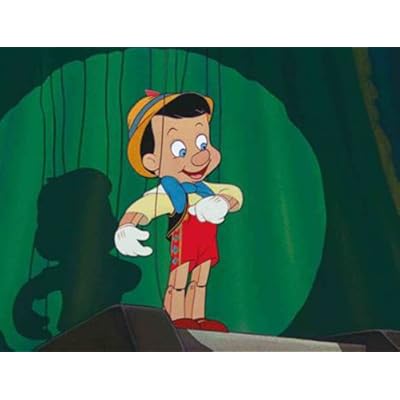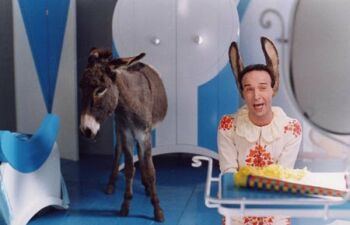As I read Pinocchio (which was always my favorite Disney movie growing up), I specifically tried to avoid imagining this:

Of course, those of you who are reading the book know that the tone is drastically different than that of the Disney movie. I avoided this film because of the reviews, but I would now be curious if any of you have seen it:

Another American retelling of Pinocchio (I think we all can agree that Spielberg and Kubrick are good flavors that don't mix, much like cotton candy and steak tartare):

Here is a more representative Italian drawing:

Mickey Rooney, anyone?

Five things to think about before book club:
1. Whether the best works of art inspire faithful or unfaithful adaptations
2. The fact that 'children's literature' was not a genre when Coloddi wrote this, and how he both tries to instruct and undercuts that instruction at the same time
3. The role of the Blue Fairy, and the feminine in general, in this boys' story
4. How the Gepetto/Pinocchio relationship is an allegory for artist/art
5. I hate to say it, but all that psychoanalytic stuff (born as wood, shaped into a puppet, only fully human by controlling impulses, and of course the nose.)
2 comments:
re: #2 - I don't understand why West claims there was no such thing as children's lit when Pinocchio came out when Hans Christian Andersen and the Brothers Grim predated/were contemporaneous with Collodi. Pinnochio seems to be of a kind with folk tales much more than what we think as children's lit today. Much of its length and episodic nature seems to be answerable to the serial release, in a pretty traditional way. I haven't finished the afterword, though, so maybe I'll be convinced.
Okay, nix my first comment- West isn't saying he was first at all. I guess I hadn't really read that section. Or maybe it was the wine helping me comment last night.
I still take issue, however, with Eco saying that Pinnochio "lacks the fariy tale's indifference to everyday reality." This was one of the trippiest, most surreal books I've ever read! And fairy tales have starving families, etc, if that's what he's talking about.
Everybody should definitely read the afterword to hear where Collodi originally left the story to end! I couldn't believe it!!!
Post a Comment